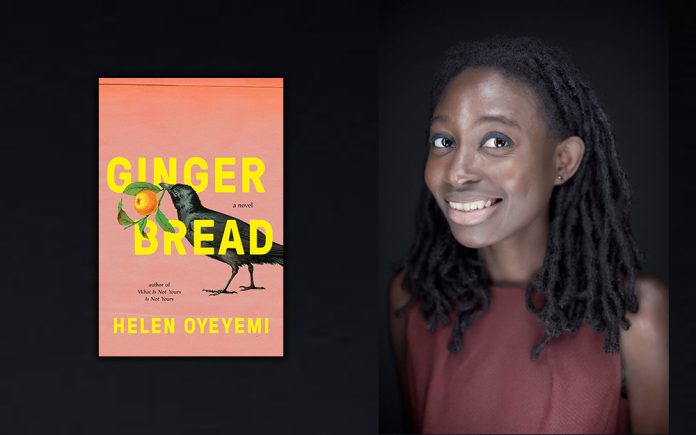
BY HEIDI SIMMONS
——
Gingerbread
by Helen Oyeyemi – Fiction
——
There is something beautiful about fairytales, folklore and fables. Whether from the distant past or written in the new millennium, hyper-imaginative, allegorical works have the power to creatively inform readers about the real world and current events. In Helen Oyeyemi’s Gingerbread (Riverhead books, 272 pages) a mother and daughter come to terms with being outsiders.
Harriet Lee is a single working mother who lives with her teenage daughter Perdita in a multicultural, ethnically diverse British community. Harriet’s mother Margot lives nearby and helps with raising Perdita. The women all have gray hair – even Perdita. It’s a family trait. And, what exactly the family tree looks like is a big question for Perdita a modern, young woman.
For some reason, the three women are very different from everyone else. Harriet recognizes she and her family are eccentric and don’t have many friends. But no matter how hard Harriet tries to fit in and participate with Perdita’s school, she seems to make matters worse. Harriet is known for her gingerbread. She lovingly makes a loaf for all the members of the parent association, but she and the bread are rejected. Perdita is also an outsider and has no friends.
When Perdita appears to have attempted suicide by making and eating poisonous gingerbread, Harriet is desperate to find out why her daughter would want to end her life. Fortunately, Perdita survives and Harriet is able to discover what really happened to her daughter.
The added ingredient in the gingerbread allowed Perdita to visit another world – Druhástrania — in search of her biological father and her mother’s childhood best friend Gretel. Although the journey nearly kills her, Perdita discovers the truth of her mother’s past.
This story starts out enticing and marvelously creative. Harriet and Perdita live in a seventh floor walk-up flat with colorful walls, talking plants and living dolls. Their eccentricities are charming and harmless – albeit a little weird and more than slightly creepy. The tale gets serious and horrifying when Perdita goes missing and Harriet finds her daughter near death.
The majority of the narrative is about Harriet’s bizarre past growing up in the unknown alt-world of Druhástrania and how she came to live in the existing world with her mother Margot and Perdita. While Perdita is recovering from her near death, Harriet recounts how her parents, Margot and Simple Simon Lee, met and lived in the strange and dangerous world.
The middle two-thirds of the book is about Harriet’s youth and romance with both Perdita’s father and Gretel. It is convoluted and difficult to follow the family genealogy. What seems to seep through is an allegory about immigration, the fear of outsiders, and the abuse of immigrant laborers.
Author Oyeyemi not only has a vivid imagination, but is also extremely insightful regarding the social, political and economical struggle between the classes. I like Harriet, her mother and daughter, and I appreciated their personal strength and integrity in the world which has difficulty accepting those who are different. I was also surprised by Perdita’s trip to the other world and why she took the journey. Her name comes from the Latin meaning lost. Understanding who we are and knowing we have family and traditions flavors our lives and grounds us no matter where we live.











































